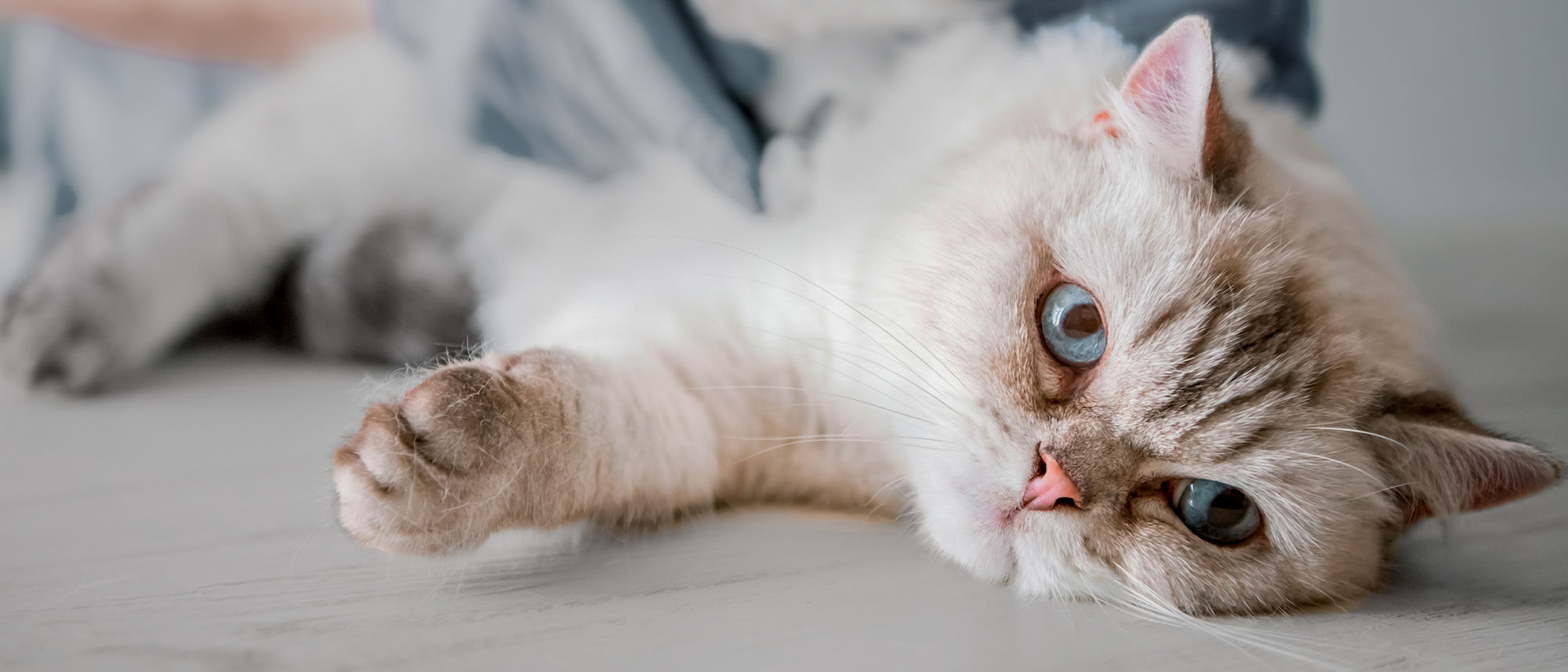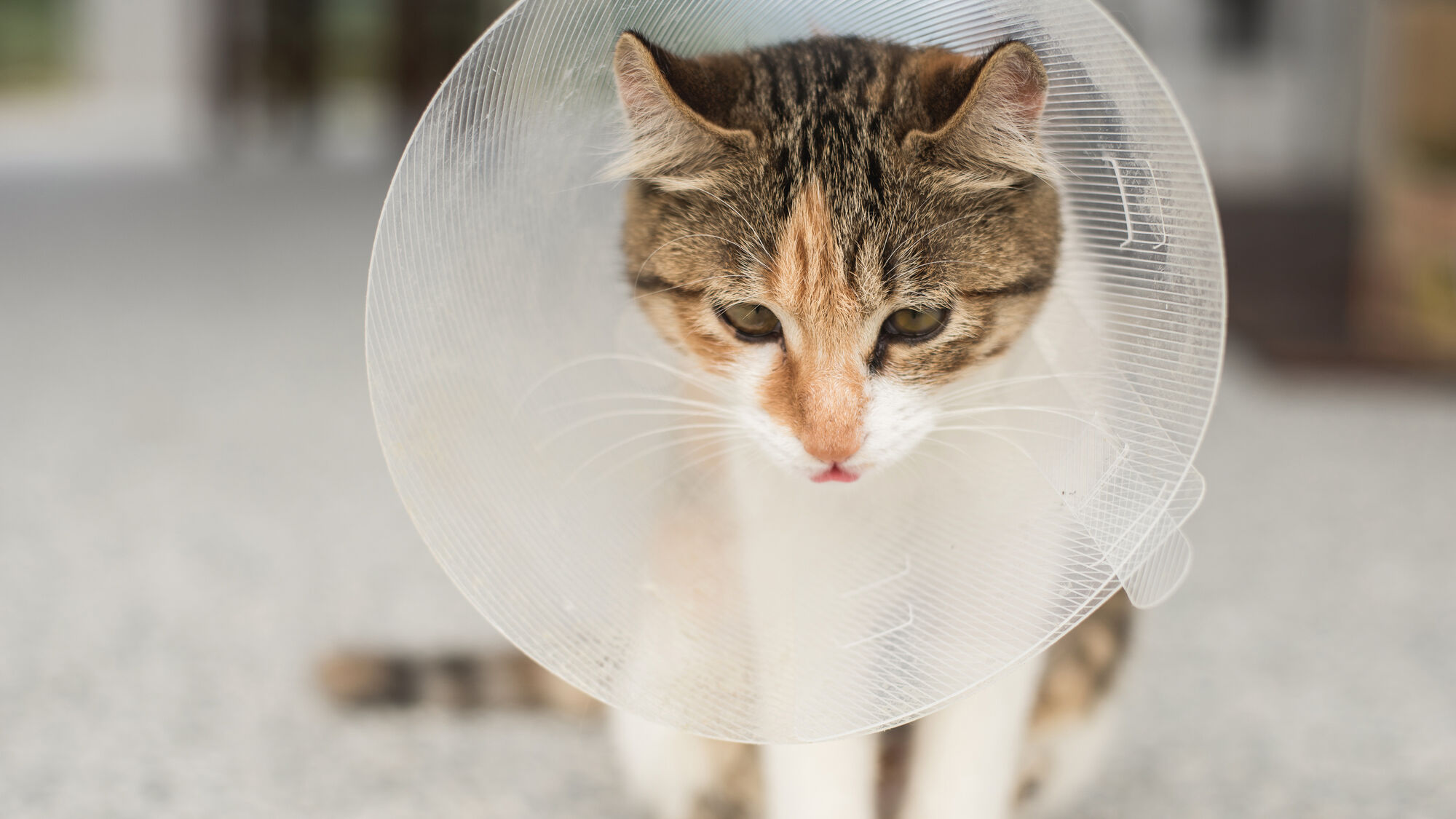When to spay a female cat?

Getting your female cat spayed is an important decision. It can positively affect her health and wellbeing and very rarely results in any complications.
What is spaying?
Spaying is the process of sterilising your female cat. In male cats, it’s called neutering, although sometimes this term is used to refer to the sterilisation process in both males and females.
How does spaying work?
Spaying must be conducted by a vet, and entails your cat undergoing an operation. It then prevents your female cat – also called a queen – from producing eggs which could be fertilised by a male cat, as well as stopping their “heat” behaviours.

When can I get my cat spayed?
Whether male or female, you can get your cat sterilised around puberty. For queens, this is at six to seven months old, although it can be done safely from the age of four months. Female kittens tend to have their first heat cycle when they’re six months old; you’ll notice a change in their behaviour as they meow a lot, rub up against your legs or furniture, and adopt a mating posture whenever their back is touched.
"For social, health and population control reasons, it is now recommended neutering should routinely take place at around 4 months of age." International Cat Care
Should I get my cat spayed?
It’s up to you whether you decide to get your queen spayed. It’s important to remember that sterilisation does offer huge benefits; the most important being that it can improve your cat's health and significantly increase her lifespan. Here are a few other factors you should take into account as you make your decision:
Health
Female cats that are not neutered are more likely to suffer
from mammary tumours and uterus infections later in life.
Queens with infectious diseases can pass these on to their kittens.
Welfare
It can be difficult to find responsible homes for kittens.
Unfortunately, this can result in kittens being placed in
shelters or, in extreme cases, on the streets where there’s
a higher risk of illness.
Safety
Driven by their sexual instinct, unsterilised cats tend to
run away for several days and may be involved in
accidents, leading to trauma or even be affected by
poisoning. Once sterilised, cats are less likely to move far
from their homes. It also reduces the chance of your
queen fighting with other cats.
Nuisance control
Cats in heat can be noisy for owners and neighbours.
Sterilisation stops the untimely meowing of cats in heat to
attract males.
How will spaying affect my cat’s diet?
As soon as your cat has been spayed, you’ll start to notice changes in her behaviour – including her feeding habits. Her appetite can increase by as much as 18%, but her actual energy expenditure reduces by 30%. This means it’s very easy for your queen to overeat and store the extra energy as fat. As such, they should not be given free access to food and owners should pay careful attention to the portions they are feeding to female kittens after neutering.
If you decide to spay your cat before 12 months of age, she will still be growing and therefore needs a food which supports this without encouraging her to put on weight unnecessarily. A diet that is formulated to support sterilised kittens should be fed at this point.
"Introducing portion control to maintain an ideal body condition score and substituting some wet kitten food into the diet are useful strategies for helping with healthy weight management in this context,” Author and Waltham scientist Dr Lucille Alexander.
What complications can there be with spaying?
The biggest watch-out when it comes to spaying your cat is the potential weight gain. Making sure that your cat is on an appropriate diet for their adapted energy levels, and that you keep them active with regular play sessions, can help to keep your cat in good body condition after sterilisation.
If their activity isn’t monitored, and their diet isn’t adapted accordingly, this can lead obesity in cats. Sedentary or indoor cats can also end up with digestive issues due to a lack of movement and lots of time spent grooming themselves.
Deciding to get your cat spayed is a decision which can positively affect her health and home life, but it does have long-lasting effects. If you’d like further advice, speak to your vet who’ll be able to advise you on the best course of action.
How do I prepare my cat for spaying?
If you decide to sterilise your cat, it is advisable to follow the advice of your vet. After an examination they will set the date of the operation and tell you how to prepare her for the procedure and care for her afterwards. Here are a few things to remember:
You should not feed your cat before the operation. Ask
your vet when you should remove food and water before
the surgery.
Sterilisation is stressful for any cat, so do your best to
make her as comfortable as possible.
Your cat may require a postoperative blanket to protect the
area around the incision.
How should I care for my cat after sterilisation?
Cats usually recover quickly after this kind of operation.
They may be a little drowsy for a few hours, but will
usually be lively again by the next day. Ideally you should
keep your pet fairly calm for a day or two to allow the
internal wounds some time to heal.
Your cat or kitten may not eat for some time after the
procedure. Remember to place a bowl of fresh water next
to the cat's bed. Your vet will be able to let you know when
after the operation you can begin to offer her food in small
portions. Your vet may recommend a specific diet for your
cat.
You should contact your vet if your kitten is unusually quiet
or listless, or if she starts to lick or scratch excessively at
the skin sutures. Your vet can apply a dressing or special
collar to prevent any damage being done to the wound.
Finally remember to monitor eating habits and speak to
your vet about adjusting your cat’s food should she start to
put on too much weight.
A healthy start to life
Tailored nutrition for your kitten.
Like & share this page